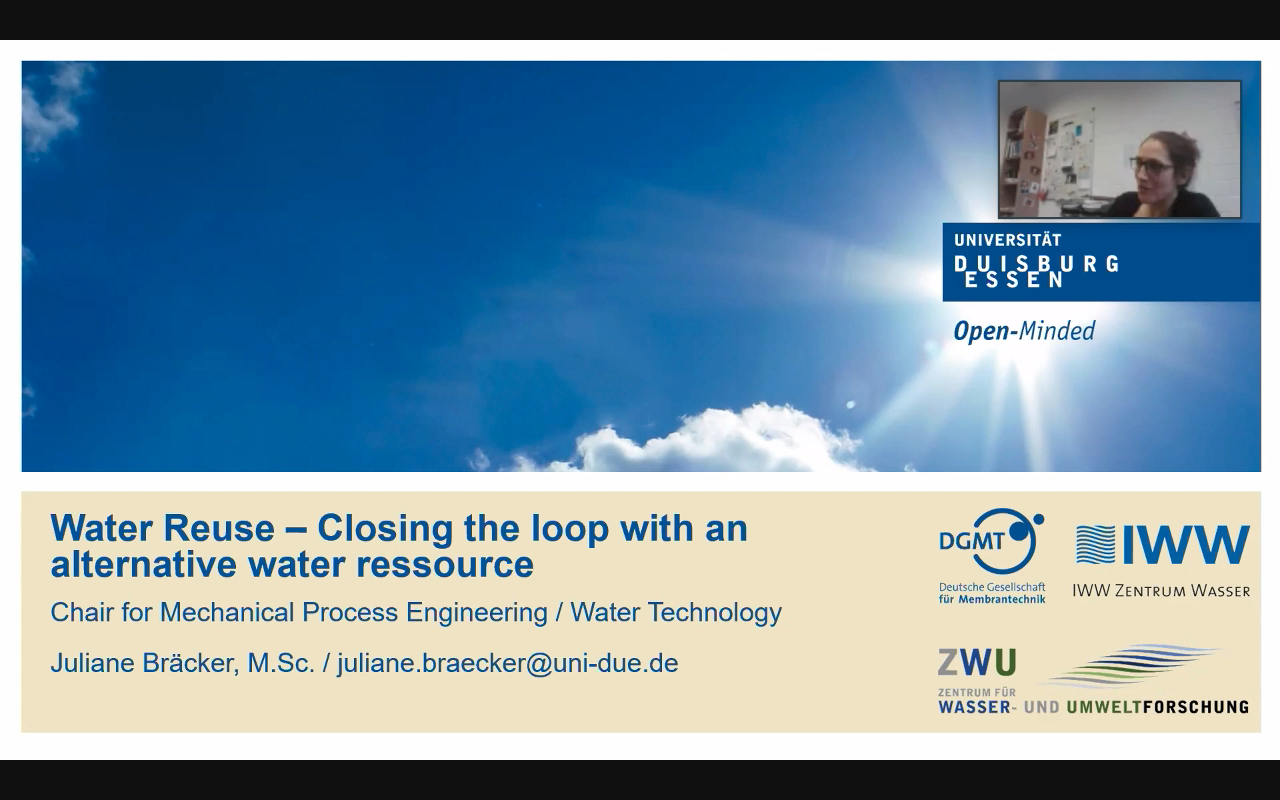On Monday (14/3), the Masters Program in Environmental Engineering, University of Indonesia held the fourth session of the webinar as well as a public lecture series “Resources Recovery as The Future of Environmental Engineering”. Domestic water waste management is the theme of this session. Two speakers were presented in this public lecture, they were Dr.-Ing Mohammad Azari from the Institute for Water and River Basin Management Karlsruhe Institute of Technology, Germany and Juliane Bracker, M.Sc., Chair Mechanical Process, University of Duisburg-Essen, Germany.
Based on data from the Central Statistics Agency (BPS) on November 11, 2021, more than 50% of households in Indonesia dispose of waste water into ditches to rivers. Unmanaged waste water has a very detrimental impact on the environment and also the survival of living things themselves. Most domestic wastewater contains chemical components and excess nutrients such as phosphate, nitrate and ammonium which result in oxygen depletion (eutrophication) in water bodies, thus affecting aquatic ecosystems.
Mohammad Azari in his presentation explained about the recovery of water content in the management of domestic water waste. He explained the waste water management carried out by Ostara. “Ostara provides a cost-effective solution that addresses the demands of managing water supplies and recovering phosphorus for reuse as something of high value, while producing water that meets the needs of society. Ostara significantly reduces the volume of sludge in wastewater using Pearl® Technology by depositing phosphate and ammonia from the wastewater stream by adding magnesium,” said Azari.
In the second discussion, Juliane Bracker explained about water recycling. Water Reuse or water recycling means taking water back from various sources then treating and reusing it for useful purposes such as agriculture and irrigation, drinking water supply, groundwater recharge, industrial processes, and environmental restoration.
“Water reuse can provide an alternative to existing water supplies and be used to improve sustainability, and water security. In Germany, water reuse is used in agricultural irrigation, industrial activities, groundwater recharge, and other activities such as recreational lakes, aquaculture, water sources for firefighting, water sources for washing cars, and cleaning toilets,” said Juliane.
The Dean of FTUI, Prof. Dr. Heri Hermansyah, ST., M.Eng., IPU said, “The treatment of domestic water waste will produce two advantages, namely overcoming the problem of environmental pollution and providing an alternative to using wastewater from households as a new source of clean water for the community”.
***
Public Communication Bureau
Faculty of Engineering, Universitas Indonesia

